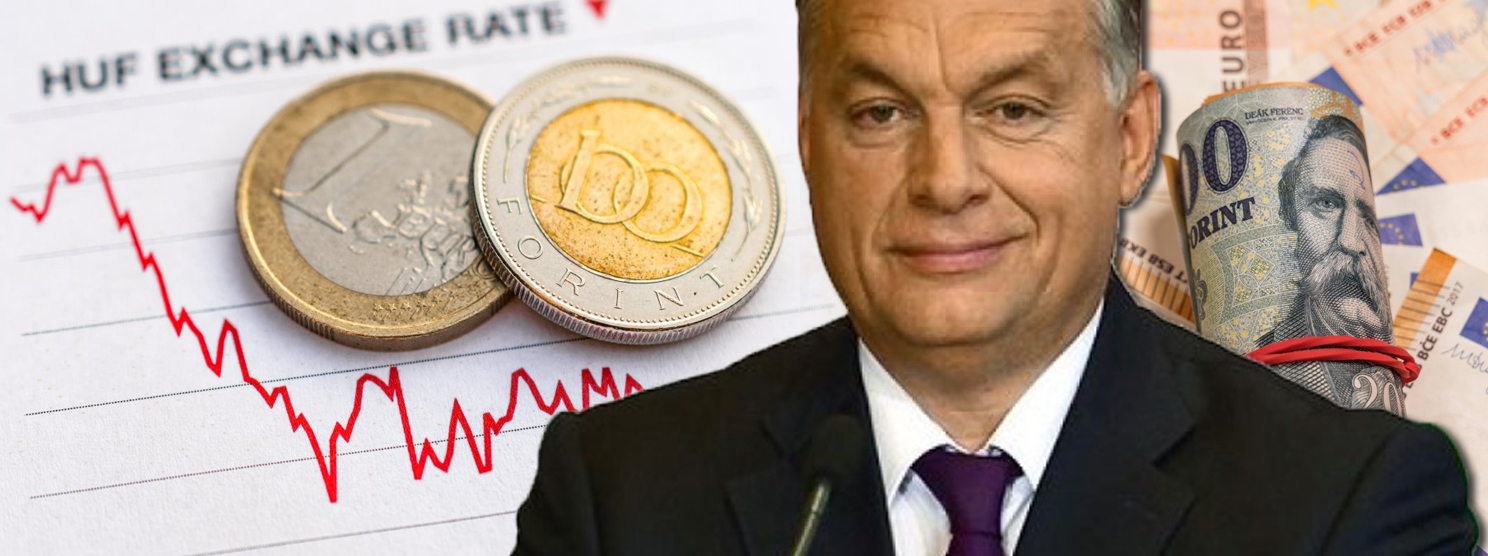Published: 7.7.2020
 Viktor Orbán and his government are deliberately weakening the forint and profiting from it at the expense of Hungarian people, while keeping Hungary away from joining the eurozone against Hungarian interests and contrary to their own former creed. This is more than a crime. The introduction of the euro is not a matter of choice, but our commitment, which we undertook by signing the accession treaty. Fidesz has been babbling about the common currency for years and always relates to the introduction of the euro according to the temporary financial interests of its most favoured oligarchs. In its 2009 but still valid European Parliament program, Fidesz blamed previous governments precisely because they did not consider the introduction of the euro a priority.
Viktor Orbán and his government are deliberately weakening the forint and profiting from it at the expense of Hungarian people, while keeping Hungary away from joining the eurozone against Hungarian interests and contrary to their own former creed. This is more than a crime. The introduction of the euro is not a matter of choice, but our commitment, which we undertook by signing the accession treaty. Fidesz has been babbling about the common currency for years and always relates to the introduction of the euro according to the temporary financial interests of its most favoured oligarchs. In its 2009 but still valid European Parliament program, Fidesz blamed previous governments precisely because they did not consider the introduction of the euro a priority.
“In the current financial and economic crisis, the euro has passed the test and proved to be a stable currency (…) If the current crisis had hit Hungary within the eurozone, there would have been no forint crisis in the first place. Secondly, loans taken by households in foreign currency would not have become more expensive (…) Every effort must be made, therefore, to make Hungary a member of the euro area as soon as possible (…), the Maastricht convergence criteria for the introduction of the euro must not be disputed, but met” – goes the wording of the program. Moreover, according to the document, Fidesz believes that „the introduction of the euro will also be an important feat of arms for national self-esteem.”
If they did not lie then, then the current government policy simply cannot be interpreted in any other way than Viktor Orbán and Fidesz having renounced the strengthening of national self-esteem for simple, primitive profiteering.
A few years ago, the then secretary of state and current finance minister, Mihály Varga said that joining the euro zone would not be worthwhile for Hungary for the time being, „however, if other countries from our region enter the zone, Hungary cannot be left out, either.” So it would seem the minister either does not read the news or has already forgotten his previous commitment, as after the Slovaks and Slovenes, Bulgaria and Croatia have now announced that this year they will join ERM2, which is considered the gateway to the euro and adopt the single currency in 2023.
By not even setting a target date for the introduction of the euro, even though according to the latest surveys more than 65 percent of Hungarian society would support it, the government clearly and unequivocally goes against Hungarian interests. This way Hungary is left out of the inner circle of the core countries and is excluded from certain decisions, and does not benefit from their advantages and protective network.
Back in 2004, as an opposition leader, Viktor Orbán said: „a weaker forint means a weaker state, and only weak people can wish for a weak forint.” He also added that the weakening of the forint by the government is in fact a simple theft, because it is “stealing money out of people’s pockets” when their salaries are devalued. When Fidesz took power in 2010, the exchange rate of the euro was just over 280 forints, and now (when it is said the golden age is here thanks to the government), the exchange rate is already at 356 forints for a single euro, reaching an historic peak. So much for the national self-esteem mentioned by Fidesz and the weak state of Viktor Orbán.
After the Hungarian PM’s landmark speech in Tusványos in 2014, in which he proclaimed his desire to turn Hungary into an illiberal state, I pledged to draw the public’s attention to the transgressions of this regime in an open letter every week. This is the 253rd time I ring the bells of alarm, as it still seems necessary. And also, because as a radical European Democrat, it is my duty to do so.
dr. István Ujhelyi
Member of the European Parliament
5 July, 2020